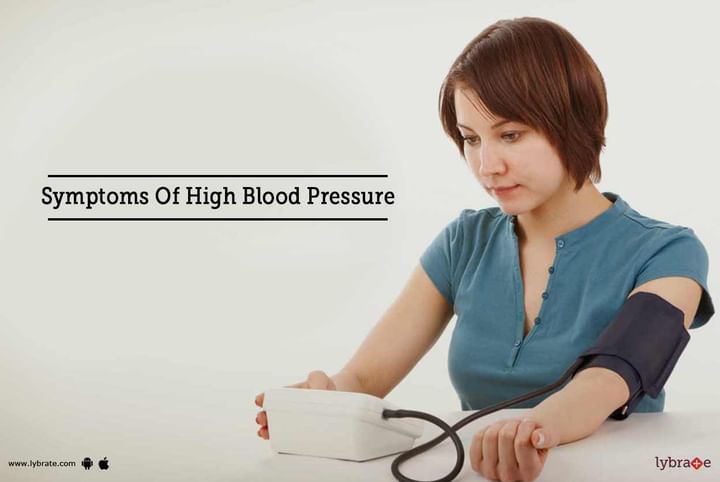Symptoms Of High Blood Pressure
Last Updated: Apr 09, 2020
Eyes are also affected by high blood pressure as tiny, delicate blood vessels are transporting blood to the eyes and this elevated pressure can squeeze off blood flow resulting to damage to the blood vessels. The leaked fluid will remain in the retina of the eyes and focusing function of eyes is affected. Distortion of vision happened due to such blockages of blood vessels and it is also impairing optic nerves. This condition causes blurred vision or complete loss of vision and only diagnosed by an eye doctor. Untreated high blood pressure should be controlled by the use of medication for saving vision.
Blood Spots in Eyes
Many researchers claiming that blood spots in eyes are related to high blood pressure and person suffering from diabetes like disorders. Yes, it is true because untreated high blood pressure along with other diseases like kidney or heart problems may affects the eyesight and cause eye disease. In high blood pressure, blood vessels of retina present at the back of the eye are damaged where images are getting focused for vision. This condition is known as hypertensive retinopathy.
Facial Flushing
When the blood vessels of face are dilated, it causes facial flushing which can be in response to the triggers like sun exposure, cold weather, spicy foods, wind, hot drinks, etc. The medication used for treating high blood pressure such as vasodilators, calcium channel blockers etc. are also reason behind occurrence of such facial flushing symptoms. Many people are describing signs such as feeling of warmth and rapid reddening of neck, upper chest, or face due to higher than usual high blood pressure.
Dizziness
Occurrence of illusion of movement of the individual or his or her surrounding environment can be termed as dizziness which is taken as warning sign of stroke associated with high blood pressure. Approx. 50% of people above 60 years are experiencing such symptoms because they are having uncontrolled hypertension. There is a lack of oxygen supply to the brain resulting into sudden occurrence of dizziness and it may lead to imbalance or loss or coordination, trouble in walking etc. as high blood pressure is a leading risk factor of stroke
Profuse Sweating
Profuse sweating or excessive sweating is a condition where a person sweats more than a normal which is also termed as diaphoresis. In such conditions nerves are being overactive triggers the sweat glands and excessive sweating occurs in hands, armpits, and the groin areas commonly. Such symptoms are also resulting from underlying medical condition like heart attack, hyperthyroidism, diabetes, hypertension etc. or someone’s medication. If a person sweats excessive with chest pain, severe headaches etc. like signs, it is an medical emergency such as heart attack.
Bleeding From Nose
Nosebleed or an epistaxis is condition which also linked with condition like high blood pressure. A sudden rapid increase in blood pressure may cause bleeding from nose, accompanied by a severe headache, difficulty in breathing and anxiety are signs of heart conditions like hypertension and congestive heart failure. A vascular fragility from long-standing disease may also results into nosebleeds but it is more common in hypertensive patients. If the bleeding is occurring from posterior part located towards the back of the nose and does not stop by pinching nostrils, then person should be taken to emergency department immediately.
Tinnitus or ringing in the ears
Tinnitus is a condition where a sound of ringing is heard by the patient where elevated blood pressure is kinking or narrowing the neck artery or blood flow. Many underlying conditions or injuries can also triggers tinnitus. A person describing pumping, beating or pulsating sound is a problem occurred because of damage to blood vessels. A prompt medical care is required for such person as it is an indicator of cardiac issues including heart attack, malformations of the small arteries.
Fatigue and Sleepiness
High blood pressure is causing certain conditions which are associated with central nervous system and people are experiencing fatigue, tiredness, headaches, vision problems etc. When the pressure remains high in the arteries, it will narrow the blood vessels of whole body. Medication taken for treating hypertension are relaxing the blood vessels and slow down the pumping action of the heart as well as the central nervous system. In such circumstances, people may feel sleepiness, and extreme tiredness.
References
- High blood pressure (hypertension)- Mayo Clinic [Internet]. mayoclinic.org 2018. [Cited 06 April 2020]. Available from:
- What are the Symptoms of High Blood Pressure?- American Heart Association [Internet]. heart.org 2016 [Cited 06 April 2020]. Available from:
- Hypertension- World Health Organisation [Internet]. who.int 2020 [Cited 06 April 2020]. Available from:
Table of content
Ask a free question
Get FREE multiple opinions from Doctors



